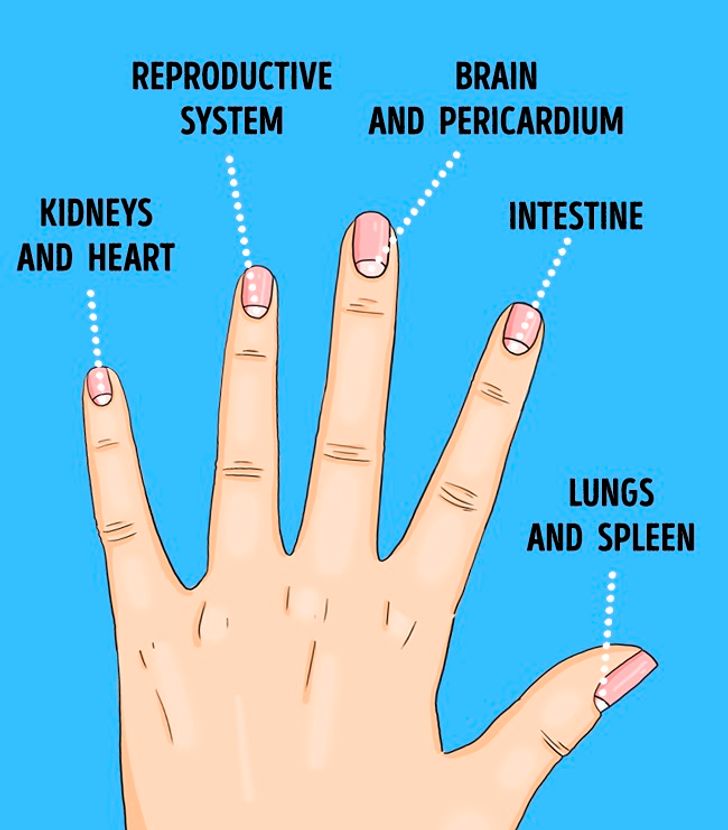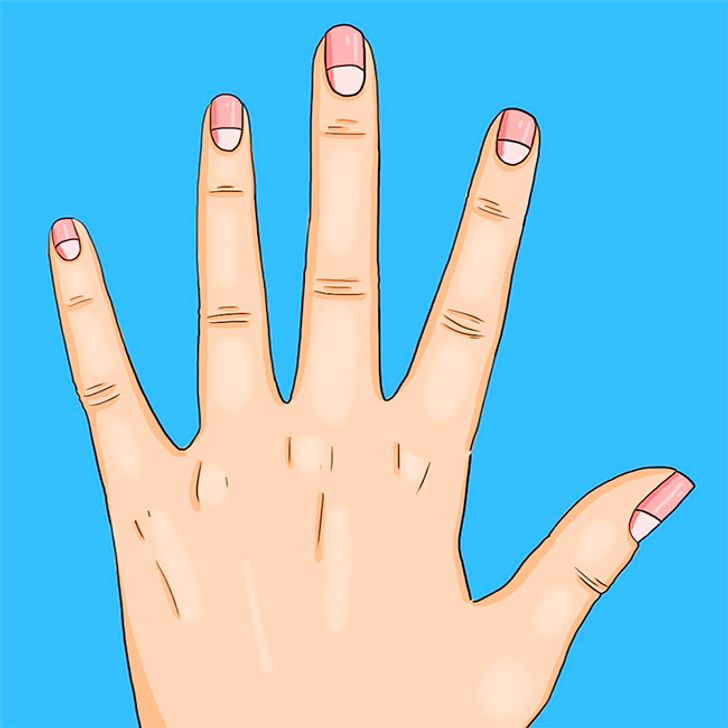If you look at your fingernails, you’ll notice light areas at the base. These are moons, or lunulae. Their change in color, shape, or size can indicate not only the presence of a disease but also the predisposition to it. Such diagnostics help you notice the problem in time and take action.
Clamotion learned how to run diagnostics of your health with the help of lunulae.
When a lunula changes on one finger

-
A lunula on the little finger, as a rule, should be almost unnoticeable or completely absent. It’s connected with the work of the kidneys, small intestine, and heart. An increased lunula can be a result of high blood pressure.
-
The ring finger is responsible for the work of the reproductive and lymphatic systems. A barely visible lunula can hint at digestion problems.
-
The middle finger is connected with the work of the brain and cardiovascular system. The absence of a lunula can indicate vascular problems and high blood pressure.
-
The index finger lunula can disappear or get considerably smaller because of improper function of the intestine, pancreas, or chronic E.N.T. diseases.
-
The lunula on the thumb reflects the work of the lungs and spleen. It’s the most visible of all and should take up no more than 25% of the whole fingernail. It can get significantly smaller in smokers or bigger when you have arterial hypertension.
Overly large lunulae

Large lunulae can be often found in athletes and people whose occupation is connected with physical activity. If a person isn’t involved in sports, enlarged lunulae may appear because of a high level of stress.




